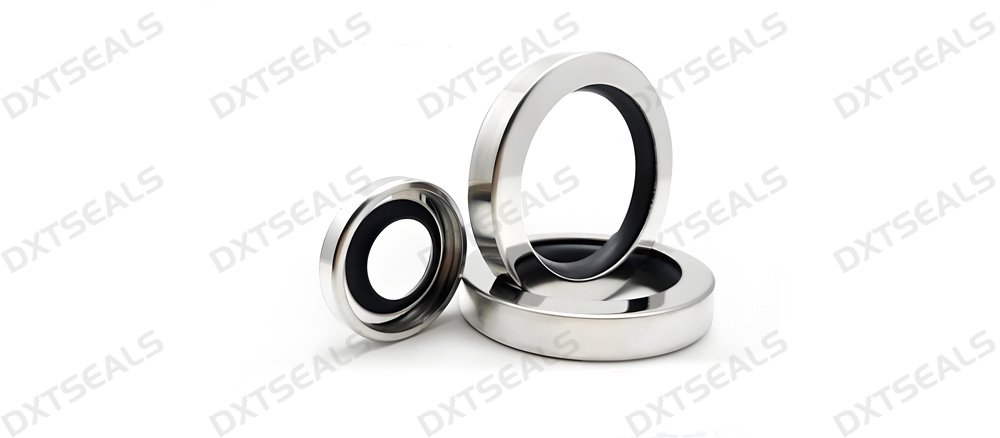
Metal washers play a critical role in a wide range of industries, providing structural support, load distribution, and sealing capabilities. Choosing the right washer for your application is essential for ensuring optimal performance, reliability, and durability. This guide will explore the key factors to consider when selecting metal washers based on specific operating conditions and requirements.
The Importance of Choosing the Right Metal Washer
Selecting an appropriate metal washer for your application can significantly impact:
- Performance: Ensuring proper load distribution and reducing stress on fasteners.
- Durability: Enhancing resistance to wear, corrosion, and environmental factors.
- Safety: Preventing leaks, loosening, or failure of fastened components.
Key Factors to Consider When Selecting Metal Washers
1. Material Compatibility
The choice of material is crucial to ensure the washer performs well under specific operating conditions:
-
Stainless Steel:
- Highly resistant to corrosion, ideal for marine, chemical, and outdoor environments.
- Commonly used in food processing and medical equipment.
-
Carbon Steel:
- Strong and durable, suitable for heavy-duty applications.
- May require a protective coating for corrosion resistance.
-
Copper:
- Excellent conductivity and corrosion resistance, ideal for electrical and thermal applications.
-
Aluminum:
- Lightweight and corrosion-resistant, often used in aerospace and automotive applications.
-
Brass:
- High malleability and corrosion resistance, suitable for plumbing and decorative applications.
2. Operating Conditions
Consider the environment in which the washer will be used:
-
Temperature Resistance:
- For high-temperature environments, stainless steel or nickel alloys are preferred.
- Copper and aluminum are suitable for moderate temperature ranges.
-
Pressure Resistance:
- Applications requiring high-pressure sealing, such as in hydraulics, benefit from metal washers with a reinforced design or gasket coating.
-
Corrosive Environments:
- In corrosive settings, choose materials like stainless steel or coated carbon steel to ensure long-term performance.
3. Load Distribution Requirements
- Flat washers are suitable for general load distribution.
- Spring washers are ideal for applications requiring shock absorption and vibration resistance.
4. Sealing Needs
- For applications requiring leak-proof performance, metal washers with rubber or PTFE coatings provide an effective seal.
5. Washer Types
Understanding the different types of metal washers and their specific applications is essential:
-
Flat Washers:
- Distribute load evenly and prevent surface damage.
- Commonly used in general fastening applications.
-
Spring Washers:
- Absorb vibration and prevent loosening of fasteners.
- Ideal for dynamic or high-vibration environments.
-
Lock Washers:
- Provide resistance to loosening due to vibration or torque.
- Used in machinery, automotive, and construction industries.
-
Sealing Washers:
- Incorporate a rubber or PTFE layer for leak prevention.
- Suitable for plumbing, gas pipelines, and hydraulic systems.
Applications of Metal Washers in Various Industries
1. Automotive and Aerospace
- Provide structural support and secure fasteners in engines, frames, and electronic systems.
- Materials like stainless steel and aluminum are preferred for their strength and lightweight properties.
2. Construction and Infrastructure
- Distribute load and provide durability in high-stress environments.
- Carbon steel and stainless steel washers are widely used in bridges, buildings, and railways.
3. Electrical and Electronics
- Copper and brass washers are used for their conductivity in circuit boards and electrical panels.
4. Oil and Gas
- High-pressure and corrosive conditions require washers with excellent sealing and resistance, such as stainless steel or nickel alloys.
5. Medical and Food Processing
- Stainless steel washers are preferred for their hygiene and resistance to chemicals.
Steps to Select the Right Metal Washer
-
Assess Operating Conditions:
- Determine the temperature, pressure, and environmental exposure.
-
Identify Material Requirements:
- Choose a material that matches the mechanical and environmental demands.
-
Define Performance Needs:
- Consider load distribution, vibration resistance, or sealing capabilities.
-
Select the Washer Type:
- Match the washer type (flat, spring, lock, or sealing) to the application.
-
Consult with Experts:
- Collaborate with manufacturers or suppliers to ensure the best fit for your needs.
Conclusion
Choosing the right metal washer requires a thorough understanding of material properties, operating conditions, and specific performance requirements. By carefully evaluating these factors, you can ensure that your washers provide the necessary support, durability, and sealing for your application.
For high-quality metal washers tailored to your needs, consult a reliable supplier like DXTSEALS with expertise in a wide range of industrial applications. Whether you require stainless steel for corrosion resistance, aluminum for lightweight strength, or specialized sealing solutions, selecting the right washer will enhance the performance and longevity of your systems.
